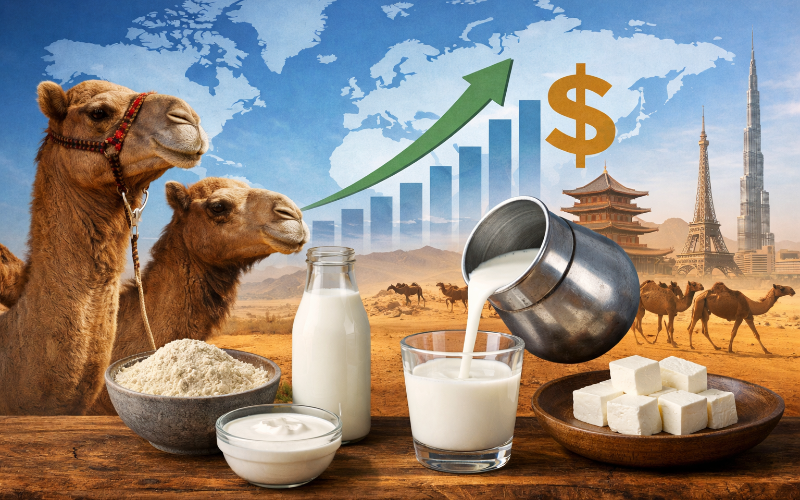It is necessary to increase the level of mechanization in agriculture in Central Asia - Denis Pronin, Weidemann GmbH

Tell us about your company, Denis.
- Weidemann has been around for over 55 years. The main sales markets are Central and Western Europe, where the most pampered customers are located, who look primarily at the quality of the machine and its functionality. We are also represented in the Baltic states (Estonia, Latvia, Lithuania), Ukraine, and Moldova. Since 2011, we have been actively developing the markets of Central Asian countries. We have a very large program of attachments specifically for livestock farming. In general, Weidemann initially produced small or medium-sized machines that are optimally suited for livestock farming. Large machines for crop production and grain cultivation have recently appeared in our program. Accordingly, Weidemann is probably one of the best specialists in animal husbandry.
You have been on the market in Central Asia for more than 10 years. What problems exist in the region?
- The level of mechanization in agriculture, especially in livestock farming, in the countries of Central Asia is currently at a fairly low level. If we take animal husbandry as one of the parts in agriculture, this is, in my opinion, the most expensive part in the human factor: we need to feed the animals, milk them, remove manure, build farms where these animals are kept, and so on. That is, animals need to be cared for almost 24 hours a day. The human factor in agriculture is also a big problem. Young people are leaving the villages; they do not want to live in those conditions, because the work is physically difficult and often poorly paid. There is a shortage of personnel, that is, there are not enough people, and those people who remain must work very hard physically, hard work, especially if these farms are old, fr om Soviet times, wh ere they do everything with their hands.
How can I solve this problem?
- There are different ways, including the company where I work, which produces loaders: telescopic or front-end, which have many different functions. Thus, the work of 10 people can be done by one person using our machines. In addition, a person does his work in comfort: he sits in an air-conditioned cabin, has heating in winter, and can even turn on music. This, of course, is much more pleasant, faster, and people will be happy to work, because they can pay him a higher salary, because he does the work of ten people, and accordingly the level of production costs will be lower. That is, the cost of production will be better. Therefore, in order to increase the level of mechanization, so that people physically need to work less, machines like ours are used, among other things.
How do you think the market is changing today? Will there be changes in 2024, or is this a period of stagnation?
- I can say that it is in the direction of our machines - loaders, that the level of mechanization is increasing. I met with one enterprise from Uzbekistan, and their representative told me that they didn’t even understand how irreplaceable our machine was. Now they simply cannot imagine how they worked before. If we talk about Kazakhstan, it is also divided: in the north there are large enterprises, in the south they are not very large, just like in Uzbekistan.
In Kyrgyzstan and in the southern region of Kazakhstan, the cooperative system is now developing very strongly, when several farms rent. Do you think there is any advantage to development in this? Will this develop?
- Until February 24 last year, when we were actively working in Russia, this was developing very strongly. But since, in my opinion, Kazakhstan lags behind Russia in the development process by about 10-15 years, this prospect is still ahead. That is, in three, four or five years, Kazakhstan will come to this, I mean specifically in the rental direction. And then in another five years it will come to Uzbekistan, maybe even earlier. Because everyone is now looking at websites, all this is done much faster. Maybe, indeed, you don’t need 10 years, maybe it will happen within three or four years. This is indeed absolutely correct. There will be very strong developments in this direction.
And in conclusion, how has this year been for your company? What can you boast about?
- This year my sales level is approximately at the level of last year. 2022 is an amazing year, I didn’t expect it to be so successful, even though I lost two main markets of Ukraine and Russia. But Kazakhstan took the technology very well, just like in Moldova. I'm happy. And the fact that we have the first cars in Uzbekistan, I consider this also a great success.
Were there any global changes?
- We have a very serious program of electric forklifts. We have the world's first electric telescope, which is already in mass production. Our competitors also have electric telescopic loaders, but they are still at the prototype stage. We already have mass production. And this year we have three new models, next year we will already have four models, that is, we are placing a lot of emphasis on electric drive. The main advantages are ecology, silent machines, more economical maintenance of equipment. For refueling, you can use solar panels, wind energy and other renewable energy sources.
Thank you very much for the interview.









